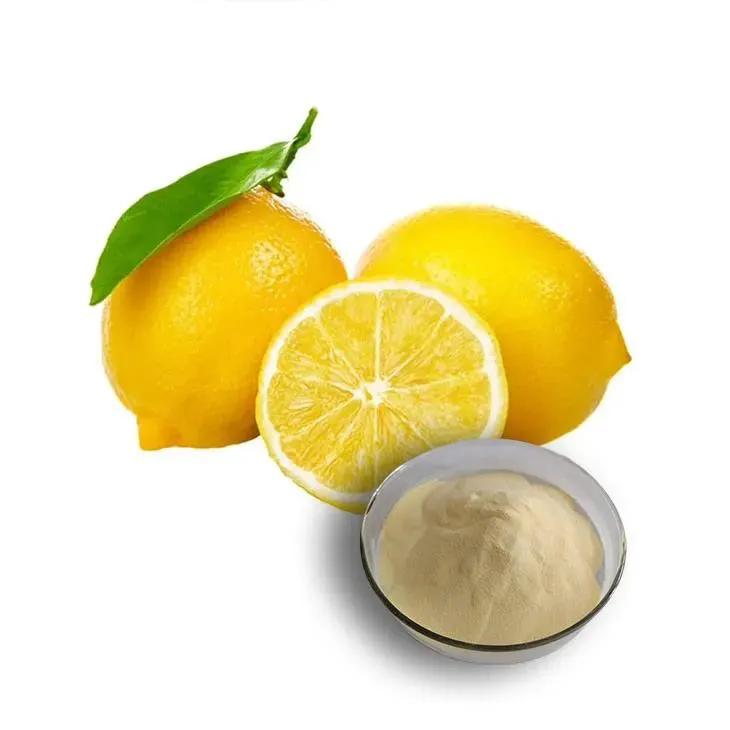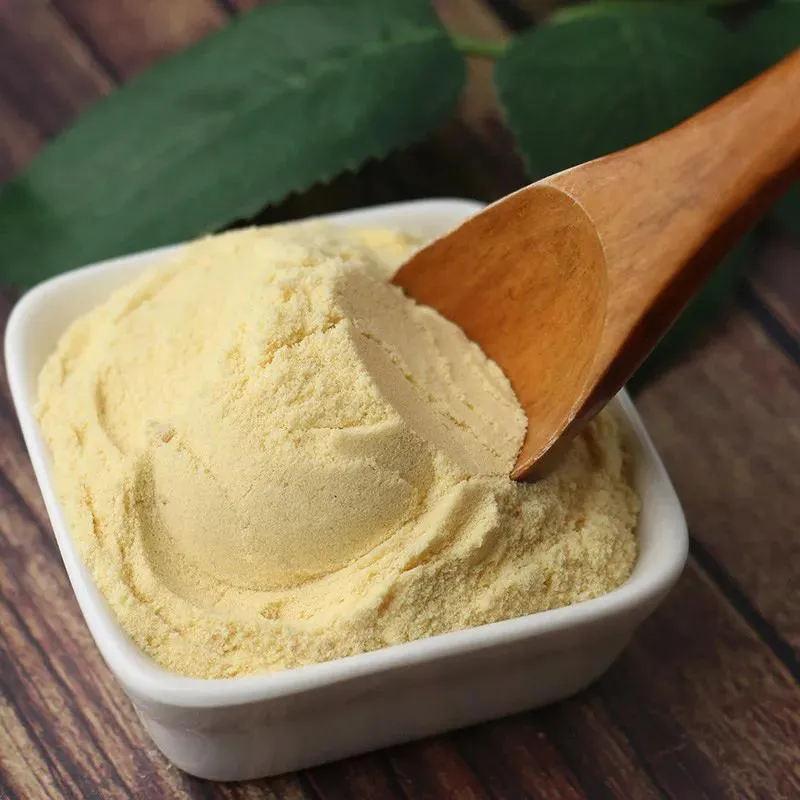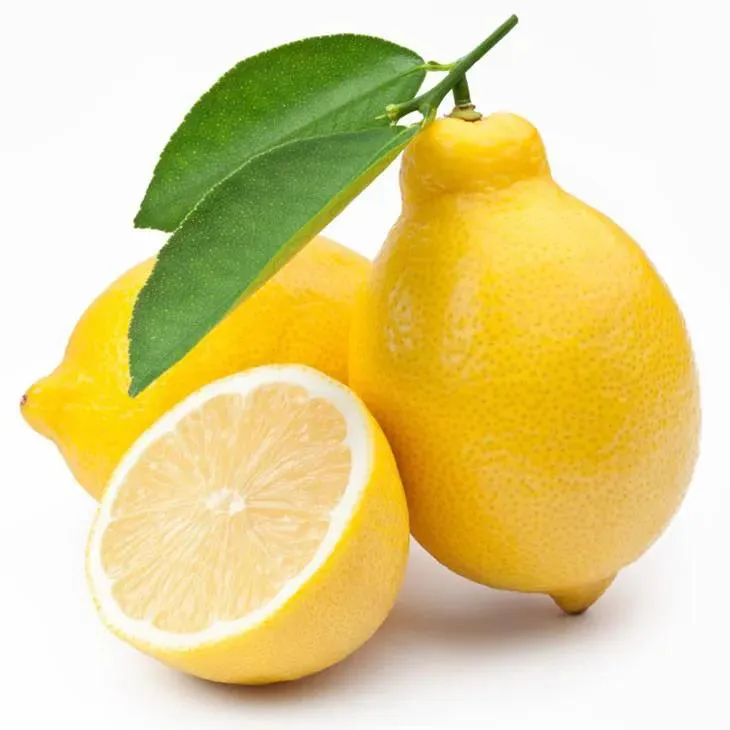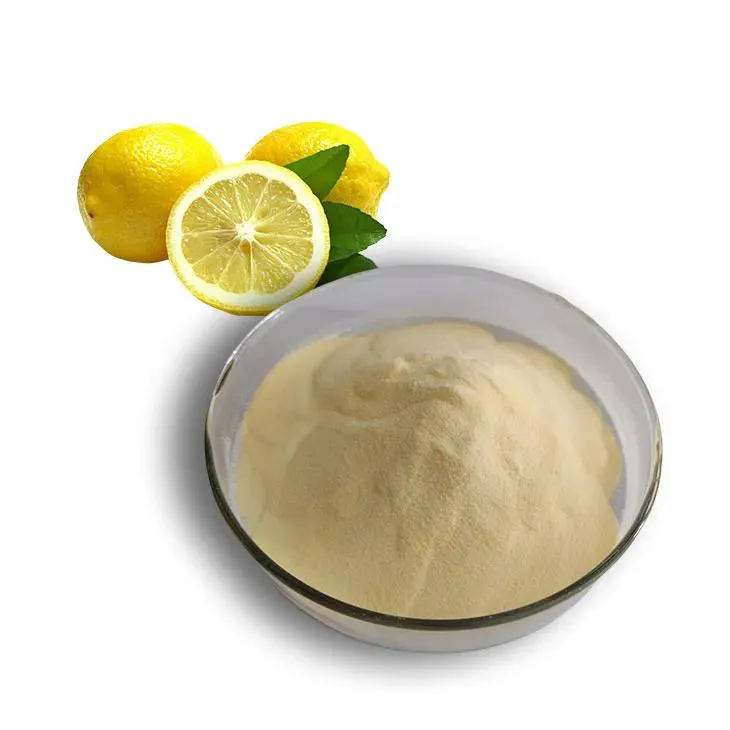- 0086-571-85302990
- sales@greenskybio.com
The flavor of mature lemon juice powder and natural lemon juice powder.
2024-11-11

I. Introduction
Lemon juice, whether in the form of natural juice or powder, has been a popular ingredient in various culinary, beverage, and even some non - food applications. In this article, we will take an in - depth look at the flavors of mature Lemon Juice Powder and natural Lemon Juice Powder, exploring their differences and similarities from aspects such as taste, origin, and potential uses.

II. Taste
A. Natural Lemon Juice
1. Freshness and Zestiness Natural lemon juice is renowned for its immediate and intense freshness. When you squeeze a fresh lemon, the juice that comes out has a bright, zesty flavor that is almost electric on the palate. The first taste is often a sharp, tangy burst that wakes up the taste buds. This tanginess is a complex combination of acidity, mainly from citric acid, and a host of other volatile compounds.
2. Subtle Sweetness and Complexity Beneath the dominant tang, there is a subtle sweetness in natural lemon juice. This sweetness is not overpowering but rather acts as a counterbalance to the acidity, creating a more well - rounded flavor profile. Additionally, natural lemon juice contains a variety of other flavor compounds such as terpenes and esters. These contribute to a more complex flavor that can have hints of floral, citrus peel, and even a touch of herbaceousness.
B. Mature Lemon Juice Powder
1. Concentrated Flavor Mature lemon juice powder is made by dehydrating and often concentrating the juice of mature lemons. As a result, its flavor is highly concentrated. When reconstituted, it can have an even more intense tanginess compared to natural lemon juice. The acidity seems to be more pronounced, hitting the taste buds with a strong, sharp note.
2. Altered Sweetness and Aroma During the process of making lemon juice powder, some of the more delicate flavor components may be slightly altered. The subtle sweetness in mature lemon juice powder may not be as nuanced as in natural juice. However, it can still provide a balancing effect to the acidity. In terms of aroma, while it retains the general citrusy smell, it may lack some of the more volatile and fresh - cut - lemon - like aromas that natural lemon juice has.

III. Origin
A. Natural Lemon Juice
1. Source of Lemons Natural lemon juice comes directly from fresh lemons. Lemons are typically grown in citrus - growing regions around the world. Some of the major lemon - producing countries include the United States (especially California and Florida), Italy, Spain, and Argentina. These regions have the ideal climate conditions, such as warm, sunny days and cool nights, which are conducive to the growth and development of lemons.
2. Production Process The production of natural lemon juice is relatively straightforward. Lemons are harvested, washed, and then squeezed to extract the juice. Some producers may use mechanical squeezers to ensure efficiency and consistency. Once the juice is extracted, it may be filtered to remove pulp and seeds, depending on the intended use.
B. Mature Lemon Juice Powder
1. Starting Material The origin of mature lemon juice powder also begins with fresh, mature lemons. However, the process diverges from that of natural lemon juice production. After the lemons are harvested, they are processed to extract the juice in a similar manner. But then, the juice goes through a dehydration process.
2. Dehydration and Processing There are several methods for dehydrating lemon juice, such as spray - drying or freeze - drying. Spray - drying involves spraying the lemon juice into a hot chamber where the water evaporates quickly, leaving behind a powder. Freeze - drying, on the other hand, freezes the juice first and then removes the water through sublimation. After dehydration, the powder may be further processed to improve its stability, such as adding anti - caking agents.

IV. Potential Uses
A. Natural Lemon Juice
1. Culinary Applications - In Cooking: Natural lemon juice is a staple in cooking. It can be used to marinate meats, such as chicken or fish, adding a tangy flavor and helping to tenderize the meat. - In Salad Dressings: It forms the base of many salad dressings, combined with olive oil, vinegar, and seasonings. The acidity of the lemon juice helps to cut through the richness of oils and adds a fresh flavor to salads. - In Desserts: It is used in making desserts like lemon meringue pie, lemon bars, and sorbets. The bright flavor of lemon juice provides a refreshing contrast to sweet ingredients.
2. Beverage Applications - In Lemonade: It is the key ingredient in classic lemonade, either on its own or combined with other flavors like mint or berries. - In Cocktails: Lemon juice is a common ingredient in many cocktails, such as the Margarita or the Gin and Tonic. It adds acidity and a citrusy flavor that balances the alcohol.
B. Mature Lemon Juice Powder
1. Culinary Applications - In Dry Mixes: Mature lemon juice powder is ideal for use in dry mixes. For example, in a cake mix or a seasoning blend for fish or chicken, it can add a lemony flavor without the need for adding liquid. - In Long - Shelf - Life Products: It can be used in products that require a longer shelf - life, such as some packaged snacks or ready - to - eat meals. The powder form is more stable than liquid juice.
2. Beverage Applications - In Instant Beverages: It is often used in instant lemonade or other powdered drink mixes. Consumers can easily reconstitute it with water to make a refreshing drink. - In Functional Beverages: In some cases, mature lemon juice powder may be added to functional beverages for its flavor and potential health benefits. For example, it may be included in drinks that claim to boost the immune system.

V. Conclusion
In conclusion, both natural lemon juice and mature lemon juice powder have their own unique flavor profiles, origins, and potential uses. Natural lemon juice offers a fresh, complex, and multi - faceted flavor that is ideal for applications where freshness and immediacy are important. On the other hand, mature lemon juice powder provides a concentrated and more stable form of lemon flavor, which is well - suited for dry mixes, long - shelf - life products, and convenience - based applications. Understanding these differences can help consumers and producers alike make more informed decisions when it comes to choosing between the two forms of lemon - based products.
FAQ:
What are the main taste differences between mature lemon juice powder and natural lemon juice powder?
Mature lemon juice powder may have a more intense and complex flavor profile. It often has a stronger acidic taste with deeper citrus notes. Natural lemon juice powder, on the other hand, has a fresher and more straightforward lemon flavor. The natural one may also have a slightly more delicate taste due to the lack of some processing - related flavor changes that might occur in the mature lemon juice powder.
Where do the raw materials for mature lemon juice powder and natural lemon juice powder usually come from?
For both, the raw material is the lemon. However, the lemons used for mature lemon juice powder might be sourced from specific lemon orchards that focus on growing lemons to full maturity. These could be from regions with ideal lemon - growing climates such as California in the United States, Sicily in Italy, or parts of Spain. Natural lemon juice powder also comes from lemons, often sourced from areas where fresh, high - quality lemons are abundantly grown, which could be similar regions but also include other lemon - producing areas around the world.
Can mature lemon juice powder and natural lemon juice powder be used interchangeably in cooking?
While they can sometimes be used interchangeably, there are differences. In baking, for example, the more intense flavor of mature lemon juice powder might work better in recipes where a strong lemon flavor is desired, like in lemon - flavored cakes or cookies. Natural lemon juice powder, with its fresher taste, might be more suitable for lighter dishes such as salad dressings or for adding a touch of lemon to a simple sauce. However, it also depends on personal preference and the overall flavor balance of the dish.
How are mature lemon juice powder and natural lemon juice powder processed differently?
Mature lemon juice powder may involve a more elaborate process. The lemons are first allowed to reach full maturity, which can affect the chemical composition and flavor. Then, the juice is extracted, and it may go through processes like concentration and drying. Natural lemon juice powder typically focuses on preserving the natural flavor as much as possible. The juice is extracted from fresh lemons and then dried into a powder form with minimal alteration to its original flavor.
Are there any nutritional differences between mature lemon juice powder and natural lemon juice powder?
Generally, both contain similar nutrients such as vitamin C, citric acid, and various antioxidants. However, the processing of mature lemon juice powder might cause some minor nutrient losses compared to natural lemon juice powder. For example, some heat - sensitive vitamins or compounds might be affected during the more complex processing of mature lemon juice powder. But overall, both can be good sources of lemon - related nutrients.
Related literature
- The Chemistry of Lemon Juice and Its Products"
- "Flavor Profiles of Citrus - based Powders: A Comparative Study"
- "Origin and Quality of Lemon - Derived Powders: A Review"
- ▶ Hesperidin
- ▶ Citrus Bioflavonoids
- ▶ Plant Extract
- ▶ lycopene
- ▶ Diosmin
- ▶ Grape seed extract
- ▶ Sea buckthorn Juice Powder
- ▶ Fruit Juice Powder
- ▶ Hops Extract
- ▶ Artichoke Extract
- ▶ Mushroom extract
- ▶ Astaxanthin
- ▶ Green Tea Extract
- ▶ Curcumin
- ▶ Horse Chestnut Extract
- ▶ Other Product
- ▶ Boswellia Serrata Extract
- ▶ Resveratrol
- ▶ Marigold Extract
- ▶ Grape Leaf Extract
- ▶ New Product
- ▶ Aminolevulinic acid
- ▶ Cranberry Extract
- ▶ Red Yeast Rice
- ▶ Red Wine Extract
-
Milk Thistle Extract
2024-11-11
-
Golden Seal Extract
2024-11-11
-
Acerola Extract
2024-11-11
-
Red Date Extract
2024-11-11
-
Peppermint Oil
2024-11-11
-
Lavender Extract
2024-11-11
-
Pine bark Extract Powder
2024-11-11
-
Moringa powder
2024-11-11
-
Acerola Juice Powder
2024-11-11
-
Lemon Juice Powder
2024-11-11




















